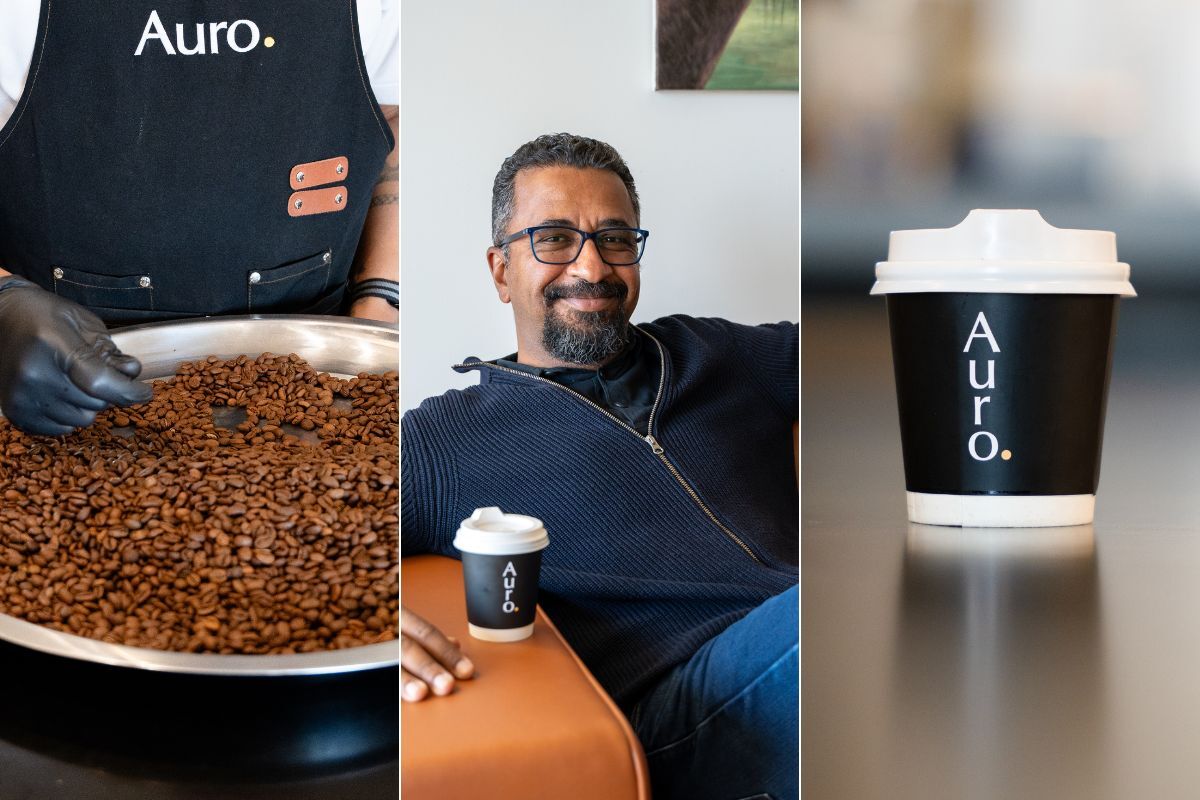
Starting high in the Ethiopian mountains, it’s a story that is still unfolding today in the capital of the UAE and beyond
An emerging destination for international luxury cruise ships, Mina Zayed, or Zayed Port, is also home to Souq Al Mina, with its distinctive Arabic architectural elements of arches under which Arabesque tiled pathways lead to a plethora of unique stores selling their wares.
One such outlet is Auro Cafe, with its low flung easy chairs and sofas, shelves laden with books and the unmistakable aroma of Ethiopian coffee being brewed.
“My family has been in the coffee trade for more than three generations,” says Ghassan Bagersh. “It’s a story that started high in the Ethiopian mountains.”
Despite being the purveyor of authentic Ethiopian coffee, Ghassan’s family actually hails from Yemen. Refugees not of war, but as Ghassan explains, a drought which occurred around the turn of the 20th century.
“A lot of people from Yemen at that time emigrated to Singapore, East Africa and to Saudi Arabia,” he says.
“My paternal grandfather emigrated to Ethiopia as a 14-year-old alone, which is mind boggling to us, but back then that age was considered to be a man.
“He made and lost his fortune multiple times before he finally made it. He met and married my grandmother, who was living in Aden in Yemen prior to my grandfather bringing her to Ethiopia where they had four children.”
You might also like: Meet the Lebanese jeweller who has been trading in Abu Dhabi for more than 40 years
Growing up in the Ethiopian capital of Addis Ababa, Ghassan explains how he left Ethiopia twice – once in 1989 to attend school in the UK, returning to Ethiopia in 2001 and then leaving again for the Emirates in 2008.
However, it was in the 1920s that his grandfather’s forage into the coffee industry began. “Our coffee company was set up directly after World War I. Today, it is considered to be the oldest company exporting coffee out of Ethiopia and we are now the fourth generation doing so.”
Ghassan explains how his family grows coffee plants, harvests the beans and sells it the world.
“Ethiopian coffee is considered high quality coffee, if not the highest, trading with the largest trading houses in the world in Germany, Switzerland, Munich, the US, Japan, and Saudi Arabia.”
Pioneers in specialty coffee, which according to Ghassan, is the highest of the highest in terms of quality, is now emulated by many coffee companies, “but we did it first,” he says.
Ghassan goes on to explain the two primary coffee processing methods, which are ‘washed’ coffees and ‘natural’ coffees. The former is when the fruit is removed, or de-pulped, from the bean, fermented and then entered the drying phase. Whereas the ‘natural’ method sees it go directly to the drying phase while still in the fruit after a quick rinse.
“The washed coffees were always considered a higher quality and the natural ones were always considered substandard,” says Ghassan. “And in the early 1990s, natural coffee, which had fermented inside the fruit, was considered a huge no, no. It was rotten coffee, due to the fermentation.”
You might also like: INTERVIEW: “The Jungle sound is about creating a world that people can escape into”
However, this changed when Ghassan’s brother in the early 1990s took a very well-known coffee from the Yirgacheffe area in Ethiopia and decided to sun dry it.
“He put the coffee through the natural process and that meant the beans fermented a bit and the flavour it yields was incredibly aromatic, incredibly flavourful with flavours that are new.
“He was the first to posit the idea that this fermented coffee is not actually rotten; it is a unique and inherent characteristic and a product in its own right,” says Ghassan.
The world was exposed to the coffee by 1993/4 and at an auction related to an international organisation it realised bids that broke all coffee prices at that time. “Idido Misty Valley, the name of the coffee, was the highest rated coffee at that time.”
Despite such accolades, the coffee was considered controversial. “It upended the traditional understanding of what quality is,” says Ghassan, explaining how many of the large international coffee buyers who would come to Ethiopia were unhappy.
“They were quite vocal in saying ‘no, this is bad coffee. What are you trying to do to the market. But the coffee ushered in the age of special flavoured, fruity and acidic coffee, which is the basis of specialty coffee as we know it today.”
You can of course, experience many of the coffees at Auro Café in Souq Al Mina and Warehouse 421 in Abu Dhabi.
For more information, visit aurocoffee.com
For more interviews, visit Yalla Abu Dhabi